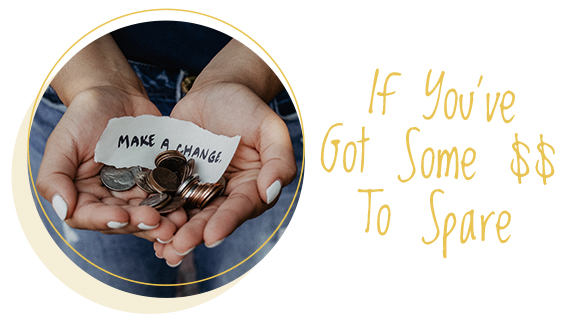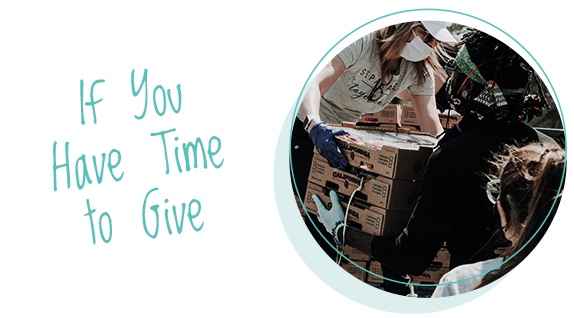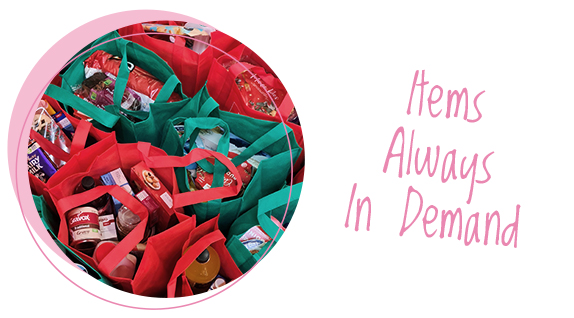No matter what the ups and downs of the last year, we’ve been overwhelmed by the outpouring of support we see from neighbors all around the country. Some are the kind of neighbors who live next door, while others are familiar to us through online groups over shared interests.
Giving back has always been a big part of the WubbaNub ethos, from our work with NICU’s, our CHD Heart Warriors, or our recent collection with Jimmy Fallon through which we donated over 1000 pacifiers to Baby2Baby.
Carla (Founder of WubbaNub/Chief WubbaMama) and her family volunteer during the holidays for meal prep for those in need, provide art supplies for group homes, and regularly donate to Goodwill. Carla is also the volunteer VP of Pathfinder Associates, Inc., her mother’s non-profit, which provides homes for adults with developmental disabilities. Helping others and giving back is in our DNA!
If you’re looking for a way to give back to your community, we’ve got a few suggestions for ways to do it (safely!)

If You’ve Got Some $$ To Spare
One of the most effective ways to get money into the hands of people who need it? Donating to smaller on-the-ground organizations who work directly with effected communities. These can be found through internet search engines, checking on neighborhood apps, following social awareness accounts on Instagram.
Need a place to start? Here’s a list of charities we support.

If You Have Time to Give
Call or text your high-risk neighbors, whether they are elderly or sick. Ask if they’re okay, and in need of items like groceries, toiletries, and prescription pick-ups. To be extra cautious, drop items off at the door to keep your neighbors safe.
You can use search engines like Volunteer Match that offers ways to volunteer locally on-site and remotely. Many organizations are in need of volunteers with research backgrounds, or legal expertise, administrative help or bookkeeping can make a huge difference to smaller places trying to stay afloat.
We want to stress how important it is to be mindful of your own health when volunteering your time, especially with vulnerable communities. But as vaccinations increase, local shelters and churches are opening their doors to volunteers to give their staff a much needed break.

Items Always In Demand
 Food. While the best way to support food banks is through financial assistance so they can purchase what they need, you can also help by donating non-perishables like peanut butter, canned goods, pasta, rice, and beans.
Food. While the best way to support food banks is through financial assistance so they can purchase what they need, you can also help by donating non-perishables like peanut butter, canned goods, pasta, rice, and beans. Baby + Nursery Items. Some of the most requested items are also the scarcest. We know how expensive it is to have a baby and to raise kids, pantries are often low on diapers, wipes or items like thermometers, nail clippers. Nutritious, non-perishable, snacks are also a favorite.
Baby + Nursery Items. Some of the most requested items are also the scarcest. We know how expensive it is to have a baby and to raise kids, pantries are often low on diapers, wipes or items like thermometers, nail clippers. Nutritious, non-perishable, snacks are also a favorite. Personal Protective Equipment. Have unopened boxes of gloves? Hospitals and healthcare centers are still facing shortages of PPE such as N95 masks and surgical masks. Give your local hospitals a call and ask if they are in need or if they know any groups looking.
Personal Protective Equipment. Have unopened boxes of gloves? Hospitals and healthcare centers are still facing shortages of PPE such as N95 masks and surgical masks. Give your local hospitals a call and ask if they are in need or if they know any groups looking. Computers + iPads. Do you have a working laptop you’re no longer using? Or maybe an iPad that’s collecting dust. There’s still a huge need to outfit students working remotely with proper hardware. Check in with a shelter that works with families or call a school in your area to help get the technology directly in the hands of the students who need them.
Computers + iPads. Do you have a working laptop you’re no longer using? Or maybe an iPad that’s collecting dust. There’s still a huge need to outfit students working remotely with proper hardware. Check in with a shelter that works with families or call a school in your area to help get the technology directly in the hands of the students who need them.

We’d also like to take a moment to say we’re thinking of all of the people currently facing food and shelter insecurity in Texas. If you would like to help those effected by the power-grid failure, please consider using this resource document as a guide.
